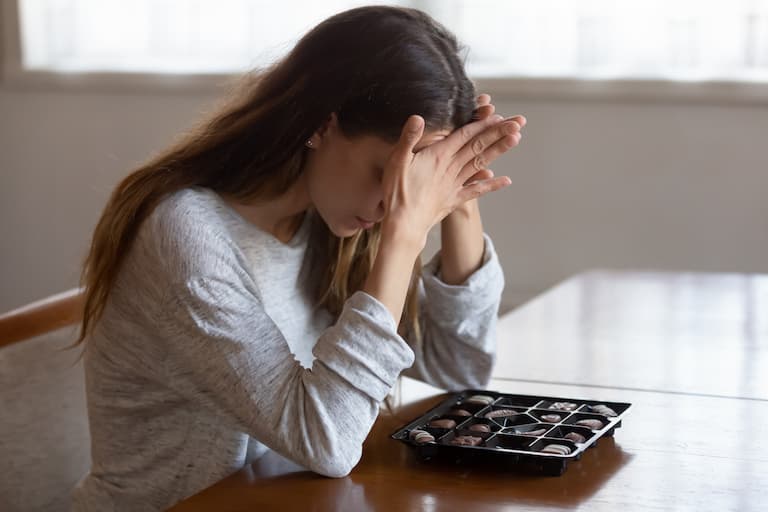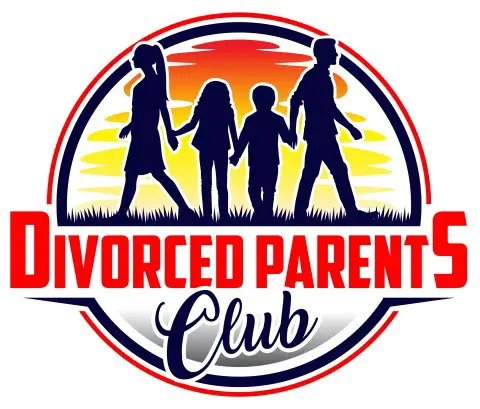Breaking up is hard for anyone, especially those in a committed long-term relationship. But life moves on, and eventually, we have to move on as well. So you’ve probably wondered, how long should you stay single after a breakup?
As a general rule, after the breakup of a marriage or multi-year relationship, it is ideal to stay single for at least 1 year before dating or entering a serious relationship. This time allows for healing, reflection, and personal growth, all of which will make the next relationship better.
Entering another relationship too quickly poses risks both to the new relationship as well as personal growth and healing.
But how long should you enjoy single life after a breakup all depends on how long it takes you to heal.
This varies with each individual because many factors are at play. The nature of the relationship, how long it lasted, and what led to the breakup can impact how long the healing process plays out.
For some people, getting over a breakup takes weeks, while others take months to a year to fully heal from a serious breakup. This article discusses how breakups affect us, what we can do with our time after a breakup, how we can take that time to mend, and how to tell when we’re ready to kick our love life back into gear.
Keep reading to find out more.

Why There’s No Timer on How Long To Stay Single After a Breakup
Something like a breakup is deeply personal.
Experts can debate how long you should stay single following the end of a past relationship. They can crunch estimates and averages, but no amount of science can put a number on how long it takes any one person to be fully healed.
There are general rules, however, that experts agree on:
- It’s never a good idea to rush into a new relationship after a breakup.
- Healing takes place at different rates for different individuals.
- Staying single can actually do you plenty of good.
You might be wondering why some people seem to bounce back quite quickly after a breakup, while others take a relatively long time to recover. The reasons for this can be pretty complex, as well, because several factors influence that, too. It sometimes depends on the person’s inherent coping abilities or the nature of the ended relationship.
Let’s unpack why it is that some people move on to a new partner faster than others and vice versa.
1. The Duration of a Relationship Affects How Long Healing Takes
You’d expect that a breakup would affect someone who was in a relationship for a few weeks differently than how it’d affect another who was in a committed relationship for months. A relationship that has spanned years is usually the hardest to recover from.
When you give years of your life to someone only for the relationship to fall apart, you’ll most likely experience an immense sense of loss–not only for the former partner but for all the time you’ll never gain back.
A relationship that has lasted more than a year is a relationship that has had many affirming moments. A breakup can feel like an invalidation of all those moments.
2. The Reason for the Breakup Can Determine the Immensity of the Loss
The reason for the breakup can also determine its impact. A relationship in which both parties grew apart and found something or someone more important than the relationship usually doesn’t do as much emotional damage.
This often indicates the emotional investment in the relationship had been depleting beneath the surface.
However, relationships that grind to a halt over a betrayal are especially painful and naturally take more time to heal. Being betrayed sometimes causes feelings of shared responsibility for the betrayal. Some people rationalize in their minds that the betrayal was justified because they failed to meet an expectation in the relationship.
This takes time and work to overcome.
3. The Nature of the Relationship Plays a Role in the Healing Process
Coming out of a committed and loving relationship can be very painful, especially if the commitment had entered a level where your friends and family had come to know and accept the person you once called a partner.
These kinds of breakups usually take longer to heal from, as your partner had become quite integrated into your life.
On the other hand, some relationships are so dysfunctional and abusive that a breakup is followed by relief and a sense of liberation.
In these cases, it may not take too long to move on from the loss of a problematic partner. However, this doesn’t mean victims of abusive relationships should just move directly into finding someone new.
Even when they’re happy to burn bridges with their ex-partners, there are still many emotions to confront and sort through. There’s also the issue of trauma that needs to be addressed and sometimes treated professionally. The road to healing is usually a long and painful one.
Recovery may span years.

Why You Should Take The Time To Be Single After a Breakup
People react to breakups in a thousand different ways.
Some people seem to recover at record-breaking speed, while others go at a snail’s pace. Healing happens at different rates because people have different ways of coping with negative emotions that come packaged with the breakup.
While breakups affect people emotionally, they can also dramatically impact the body, especially the mind.
A study published in the journal Proceedings of the National Academy of Sciences of the United States of America (PNAS) found that areas of the brain associated with pain are activated after romantic rejection.
This is telling about how deep wounds inflicted by a breakup can go. We wouldn’t expect anyone with a broken leg to be back on his feet so quickly.
So it follows that people with broken hearts should also take time to heal properly. As previously mentioned, experts generally discourage people from jumping into another relationship too soon after a breakup.
So how soon is too soon?
Too soon is anytime before you’re truly ready to open up your heart again to new people. Psychologists and relationship coaches have built a pretty strong case for why you should take the time to be single post-breakup.
Let’s discuss that further, shall we?

1. Being Single Lets You Get Reacquainted With Yourself
Being in a relationship can either make you or break you.
Those coming out of a codependent relationship often realize they’ve lost their sense of self. The codependency had stripped them of their individuality, and now they don’t recognize the person staring back at them in the mirror. Being single gives you the chance to become reacquainted with yourself.
Think back to the last time you felt like yourself. What has changed since then?
Do you still have the same goals and dreams, and if so, did your former relationship get in the way of those goals or stop you from going for those dreams? Who are you underneath the layers? Who are you when you’re alone and not tied to a relationship?
2. Being Single Helps You Become Self-Empowered
Sometimes we don’t realize how much of our happiness we outsource to the person we’re with until the relationship is over. Then it dawns on us that we inadvertently relied on their validation for a sense of worth. It’s wrong to assume only the less resilient experience this.
Even the strongest of us can experience this.
Being single gives us the chance to take back our power over our own happiness and unlearn habits of relying on others for a sense of worth and empowerment.
This alone time is difficult at first, and this is why people tend to rush to the next person, because they feel incomplete when the affirmation isn’t provided by a significant other.

3. Singlehood Lets You Focus on Other Relationships
Realizing that you have other relationships and using the time being single to enrich those relationships helps you unlock a new stage in the healing process.
Taking time to strengthen meaningful bonds with family and a trusted friend –and even creating new friendships–helps to shatter the illusion that there’s only one person that can bring meaning to your life.
4. You Have More Time for Things You Enjoy
One of the reasons people hop into the next relationship before they’ve fully healed is because they don’t know what to do with all the time they suddenly have on their hands. All those plans you made together are suddenly no longer on your calendar. And it translates into a feeling of emptiness.
But it doesn’t have to feel that way.
Finding something meaningful to do with your free time can help manage these negative emotions. What’s something you used to enjoy doing but never seemed to have the time for lately?
What’s something you’ve always wanted to try but never got around to trying? Taking up lost hobbies or picking up new ones helps dispel that illusion of emptiness.
5. Being Single Gives You Time To Reflect on Lessons Learned From the Previous Relationship
Every failed relationship has at least a few lessons to teach us for future relationships.
You have to fully process the breakup to integrate what you learned from that relationship. While it takes two to tango, sometimes the greater fault lies with one of the parties. If that happens to be you, what has the relationship taught you?
How can you grow from it and become a better person?
How To Tell When You’re Ready for a New Relationship
This is tricky. It’s hard enough to figure out how long after a relationship you should start dating again–it’s much harder to know when it’s the right time to start a new relationship.
Psychologists and relationship coaches agree that you’re ready when you’ve fully healed. (source)

So how do you know when you’ve fully healed?
There’s no single metric to determine how healed a broken heart is. As Pricilla Martinez, a relationship expert and online coach, puts it, “the right amount of time to stay single is whatever you say it is.”
Does this mean you should be dating a week after a breakup? Let’s look at the context here.
While there’s no prescribed amount of time to stay single, anyone qualified to speak on the matter will agree that the guiding principle here is you’ve taken the time to heal.
That can be weeks, months, a year, or more. The idea is, that you’re stepping back into the dating world when you’ve completely moved past the old one. So how do you know you’ve moved past the old one?
1. You No Longer Feel Rushed To Be in a Relationship
The irony is, you’re probably ready for a new relationship when you don’t feel the need for one–you’re okay with being alone. Many broken hearts skip the process.
This is known as rebounding. This is an unhealthy way to cope with a breakup because you’re entering another relationship expecting it to be the cure-all for all the hurt of the past one.
When you’ve taken the time to process your pain, loss, and sense of rejection, you rediscover your happiness and self-worth from within.
When you no longer need the validation of a relationship to make you feel complete, it means you’ve matured from the previous one. Getting into another relationship is now a self-empowered choice, not stemming from neediness.
2. You’re Ready To Be a Good Partner
When you’ve taken accountability for your share in the failure of your previous relationship, and you’ve done the work to improve yourself, you might be ready to make another commitment.
This indicates that you have the self-awareness to understand that you’re a work in progress and are open to continual personal growth.
3. When You Don’t Want Your Ex Back
If any part of you still toys with the notion of being reunited with your ex, then you shouldn’t be opening yourself up to a new relationship.
This is a clear indicator that you haven’t healed from the breakup. Consider taking more time to process the breakup until you come to the acceptance stage, after which healing can truly begin.
My ex asked for a divorce over a year ago at the time of this writing.
It came out of the blue and was a total shock to me at the time. And for a long time, I did want her back. So I purposely avoided dating. I also didn’t want to date while we were still legally married (that didn’t stop her though).
But I knew I was ready when I reached the point where I no longer wanted her. In fact, I got to the point where I knew I would be likely to say no in the unlikely event she asked to reconcile.
Then, and only then, and after the ink was dry on the divorce decree, did I start to date.
How long after a breakup is considered a rebound?
A rebound is a romantic relationship that occurs shortly after the end of a previous relationship.
It is generally considered unwise to enter into a rebound relationship too soon after a breakup, as it can be emotionally damaging for both parties involved.
But it can be a great distraction from the strong emotions from your last relationship. And as long as you recognize it for what it is and aren’t lying to this new person, it can also be a great way to get through the stages of a breakup much faster.
The rebound time frame varies from person to person.
Generally, it is recommended to wait at least six months before entering into a new relationship. This allows for enough time to process the emotions associated with the breakup and heal from any pain or hurt that may have been caused by the previous relationship.
It is important to remember that rebounds are not meant to be long-term relationships.
They are often used as an emotional crutch in order to help someone move on from their previous partner and start fresh with someone new. Rebound relationships can be beneficial if they are entered into with an understanding that they will not last forever and that both parties are aware of this fact.
Ultimately, it is up to each individual person to decide how long after a breakup they should wait before entering into a rebound relationship.
It is important to take the necessary time needed in order to heal and process any emotions associated with the breakup before jumping into something new.
Can you fall in love right after a breakup?
Yes, it is possible to fall in love right after a breakup.
It may seem counterintuitive, but it is possible to move on quickly and find love again. After a breakup, it is important to take time to reflect and heal. This can be done through self-care activities such as journaling, talking with friends, or engaging in hobbies.
Once you have taken the time to process your emotions and heal from the breakup, you can start to open yourself up to the possibility of finding love again with a new person. It is important to remember that you are worthy of love and that there are people out there who will appreciate you for who you are.
It may take some time before you feel ready for your next partner, but when the time comes, don’t be afraid to put yourself out there on dating apps and explore new possibilities.
You may find that you have more in common with someone than you thought or that they bring out different sides of yourself than your previous partner did.
Falling in love after a breakup can be scary but also exciting. It is important to remember that no matter what happens, you are strong enough to handle it and will come out of it stronger than before.
How to spot red flags in potential partners after a bad breakup
After a bad breakup, it can be difficult to trust potential partners. It is important to be aware of red flags that may indicate a person is not right for you.
The first red flag to look out for is if the person is overly eager to move the relationship forward too quickly. If they are pushing for commitment or trying to move in together after only a few weeks, this could be a sign that they are not looking out for your best interests.
Another red flag is if the person does not respect your boundaries.
If they are constantly trying to get you to do things you don’t want to do or pressuring you into making decisions, this could be a sign that they are not respecting your autonomy and may not have your best interests at heart.
It’s also important to pay attention to how the person talks about their past relationships. If they constantly talk negatively about their exes or blame them for all of their problems, this could be an indication that they have unresolved issues from past relationships and may not be ready for a new one.
Finally, it’s important to pay attention to how the person treats other people in their life.
If they are disrespectful or dismissive of their friends and family, this could be an indication that they don’t value relationships and may not treat you with respect either.
If you see these red flags, there’s almost no way you’ll end up in a healthy relationship with them.
By being aware of these red flags, you can protect yourself from getting into another unhealthy relationship after a bad breakup. Paying attention to these warning signs can help ensure that you find someone who will treat you with respect and care about your well-being.
Final Thoughts
There’s no prescribed amount of time on how long you should stay single following a breakup. But if your last relationship lasted over a year or more, consider taking 3-6 months off before getting back into the dating scene.
The end of a relationship is emotionally draining, even if you initiated the breakup.
But at the end of the day, it all depends on how much time it takes to heal, which is different for everyone. Experts advise taking all the time you need to process the breakup and integrate lessons learned from the relationship.

